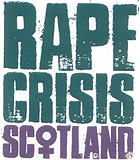rape CRISIS SCOTLAND
 If you or someone else you know has been affected
by any form of sexual violence, no matter when it
happened, please call the free and confidential Rape Crisis Scotland Helpline on 08088 01 03 02 or South West Rape Crisis and Sexual Abuse Centre
on 01387 253113/01776 889331. Trained female
support workers
support are there to listen, offer immediate support and
information, and can let you know
about support in your area.
If you or someone else you know has been affected
by any form of sexual violence, no matter when it
happened, please call the free and confidential Rape Crisis Scotland Helpline on 08088 01 03 02 or South West Rape Crisis and Sexual Abuse Centre
on 01387 253113/01776 889331. Trained female
support workers
support are there to listen, offer immediate support and
information, and can let you know
about support in your area.
Local Sources of Help and Advice
- South West Rape Crisis and Sexual Abuse Centre:
- Dumfries: 01387 253113
- Wigtownshire: 01776 889331
- Dumfriesshire and Stewartry Women's Aid: 01387 263052
- Wigtownshire Women's Aid: 01776 703104
- Police: 101 (ask for Family Protection Unit)
- South West Rape Crisis and Sexual Abuse Centre
01387 253113/01776 889331. 9am - 9pm
The Rape Crisis scotland Helpline and South West Rape Crisis ond Sexual Abuse Centre (SWRCSAC) offer support (and information for anyone aged 12 or over who has been affected by sexual violence, no matter when or how it happened. It is free and confidential. Both organizations can put you in touch with other services. The RCS helpline offers a minicom service for deaf or hard of hearing people and can arrange for language interpreters if your first language is not English.
Family and Friends of Survivors
It is important for a survivor of rape or sexual abuse to be listened to, and believed, whether they have just been attacked, or are talking about events that happened some time ago, eg in their childhood. This leaflet contains helpful information on how to respond if you have a family member, partner or friend who has just started speaking about their own experience of rape or child sexual abuse. You can actively support them by giving them space and time.
Some Reactions to Sexual Violence
Reactions and ways of coping with the effects of sexual violence are different for everyone. The ones listed below are by no means conclusive and survivors may experience some, none, or all of these feelings during a healing process.
The survivor may feel guilty or that they are somehow to blame for what has happened. They may feel worthless, lack confidence and trust. This is a natural response following such a traumatic experience. If the attack has been recent, it is possible that your friend or relative is in shock, some people respond to this by 'numbing out' and remain very calm, while others may cry and express disbelief at what has happened. It is natural to experience mood swings, to feel ashamed, dirty, angry, scared.
It is also possible that your friend or relative will experience these emotions some time ofter the event. Many survivors have nightmares about the attack. A similar involuntary reliving or reviewing of an attack can happen while awake and is called a flashback. Flashbacks can very distressing as they can be triggered by a variety of factors including smells, touch, locations or details that remind the survivor of the attack. Reliving memories of the abuse is very traumatic and many people may feel that they are going mad. This is not the case. It is part of the healing process. If the person you are supporting has flashbacks it is possible to help 'ground' them. Reassure them yhat they are safe, that it's a memory and that it's in the past. Slowing their breathing, stamping their feet, noticing their current surroundings eg colour the room is painted, snapping a rubber band on their wrist, can all help to focus on the present. It can be helpful to talk about nightmares and flashbacks, try to work out what has triggered them, if a change in daily routine or some circumstance may help to control them. Practising these techniques is also helpful if your friend or relative experiences panic attacks. These attacks are frightening and the loss of control can be very distressing. They too are a natural response to triggers which may make the survivor feel threatened.
Reporting to the Police
If you are a parent or guardian of a young child who has disclosed abuse you have the responsibility to protect their safety. You may struggle to believe the disclosure or seek to deny it eg if you know the abuser. Children do not lie about sexual abuse. They have no way of knowing about sexual acts or inappropriate behaviour unless this has been impressed upon them. Many survivors, from teenagers through to the elderly, choose not to report sexual violence to the police. There are many valid reasons for doing so. You may wish justice to be done, however, it is important to respect her/his decision. They should be in control of what happens. Whether the attack happened recently or a long time ago it is entirely their decision to report it or not. The SWRCSAC and RCS Helpline are available to offer support and information for friends and relatives as well as survivors as are the other contacts listed (on the rear of this leaflet) above.
How can I help?
Below are some helpful ways to support a survivor of sexual violence. It is natural for you to have strong feelings when the person you are supporting begins to talk about what happened. You may feel angry, distressed, overwhelmed, confused, shocked and therefore may feel unsure about how best to respond. Your feelings are valid and very understandable and it can be helpful to access support to discuss how you feel and to help you with thin supportive role.
- Listen to what she/he has to say in their own time. It might not be easy to start talking about an event that has been hidden for a long time. The abuser may have threatened them in some way to ensure silence.
- Believe people rarely lie about rape or sexual abuse. Why would they? It is important to believe what they are saying.
- Respect both her/his feelings and decisions, crying can be part of the healing process.
- Remember it is not her/his fault - no-one asks to be abused or deserves it and cannot be blamed for being unable to prevent the abuse.
- Recognise the courage it takes for a survivor to speak must be recognised and praised. It takes a great deal of courage to face up to fears and also to talk about any sexual experience.
- Don't tell them to forget about it. Don't say, 'it happened a long time ago, why does it suddenly bother you now?' Healing can take time and some people block or try to forget traumatic events. This is a way of coping with what has happened. Remembering can be triggered by events such as the birth of a baby, a TV programme, marriage, changing job, starting a new relationship etc.
- Don't ask them why they didn't fight back. People can freeze when confronted with a terrifying situation.
- Don't ask why they didn't say anything sooner. If it happened when they where young they may have tried to tell but been ignored or disbelieved. They may have been too frightened to say anything. Most people do try to tell someone at some time.
- Don't tell them what to do. They need to be in control of their own decisions about matters that affect them. You can help them to explore options that are available to them.
- Don't pressure them into doing, or talking about things they are not ready to face. When they are ready they will speak. If it is your partner that has been attacked or has remembered some past abuse which they have blocked out, they may find sexual and intimate contact difficult. It is important to realise that it is not something to do with you - it is to do with the feelings and memories they have. Reassure her/him and let them take things at their own pace. With your help, patience and understanding, she/he can heal from the trauma.
What about my feelings?
Seeing someone you care about dealing with a traumatic experience can be distressing. It is important that you get support for yourself. Without it, it can be hard for you to help. Try asking a trusted friend or family member or contact your local centre.
